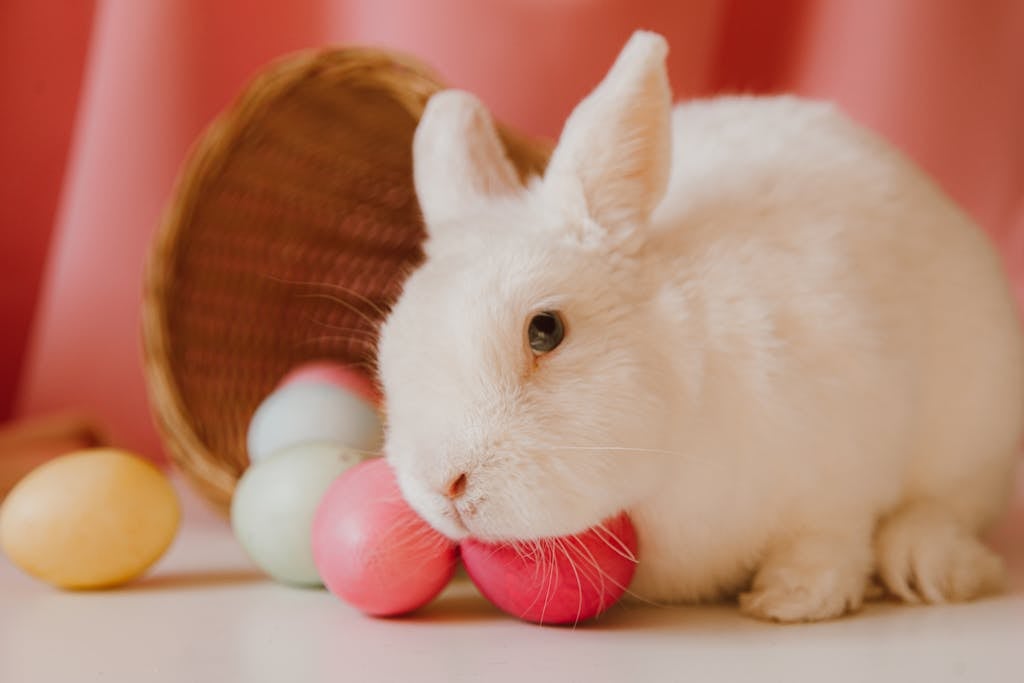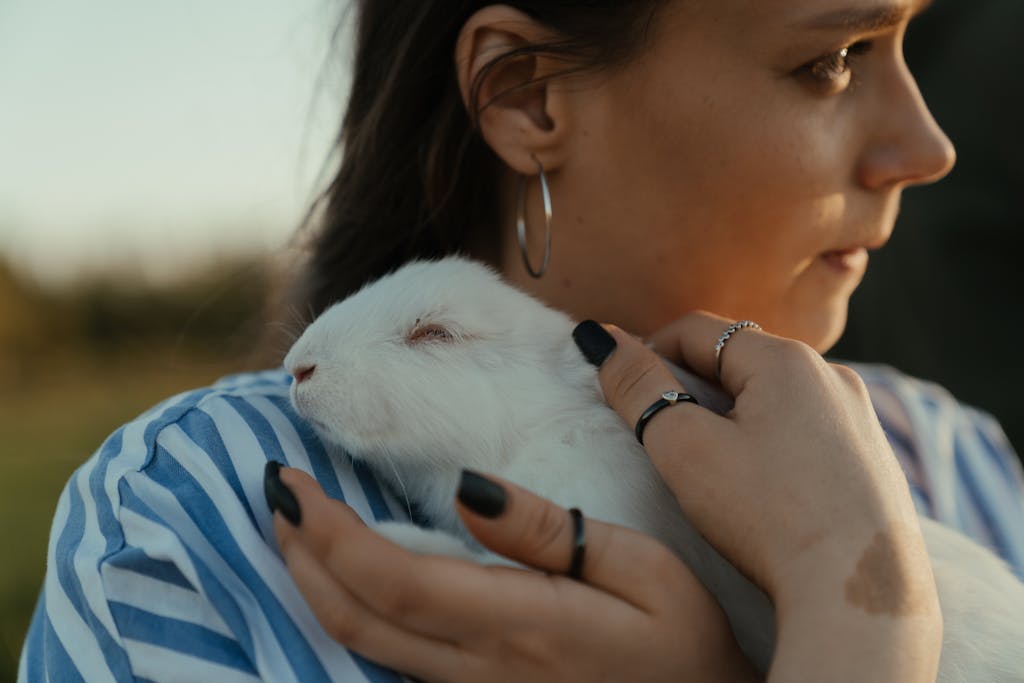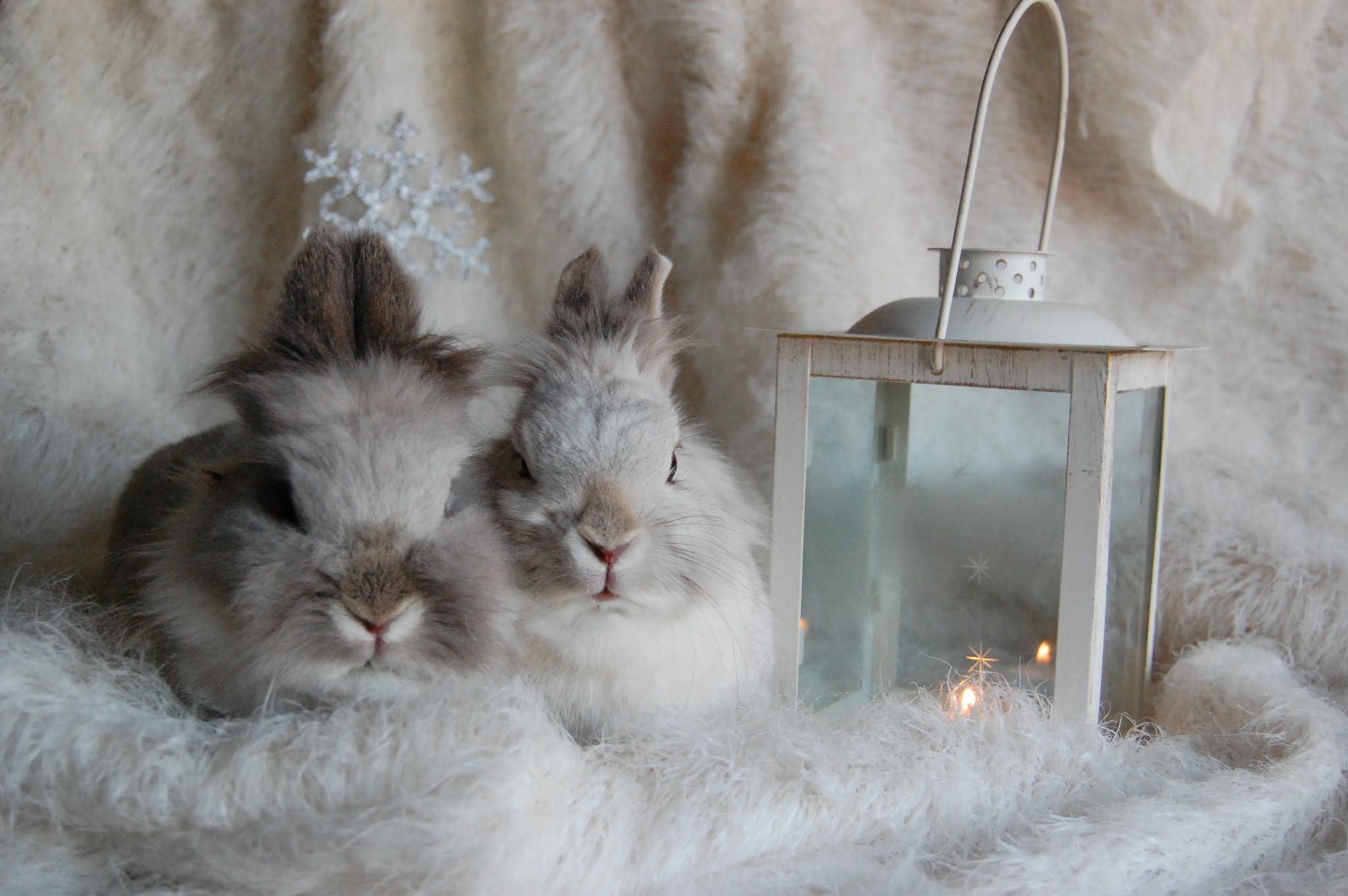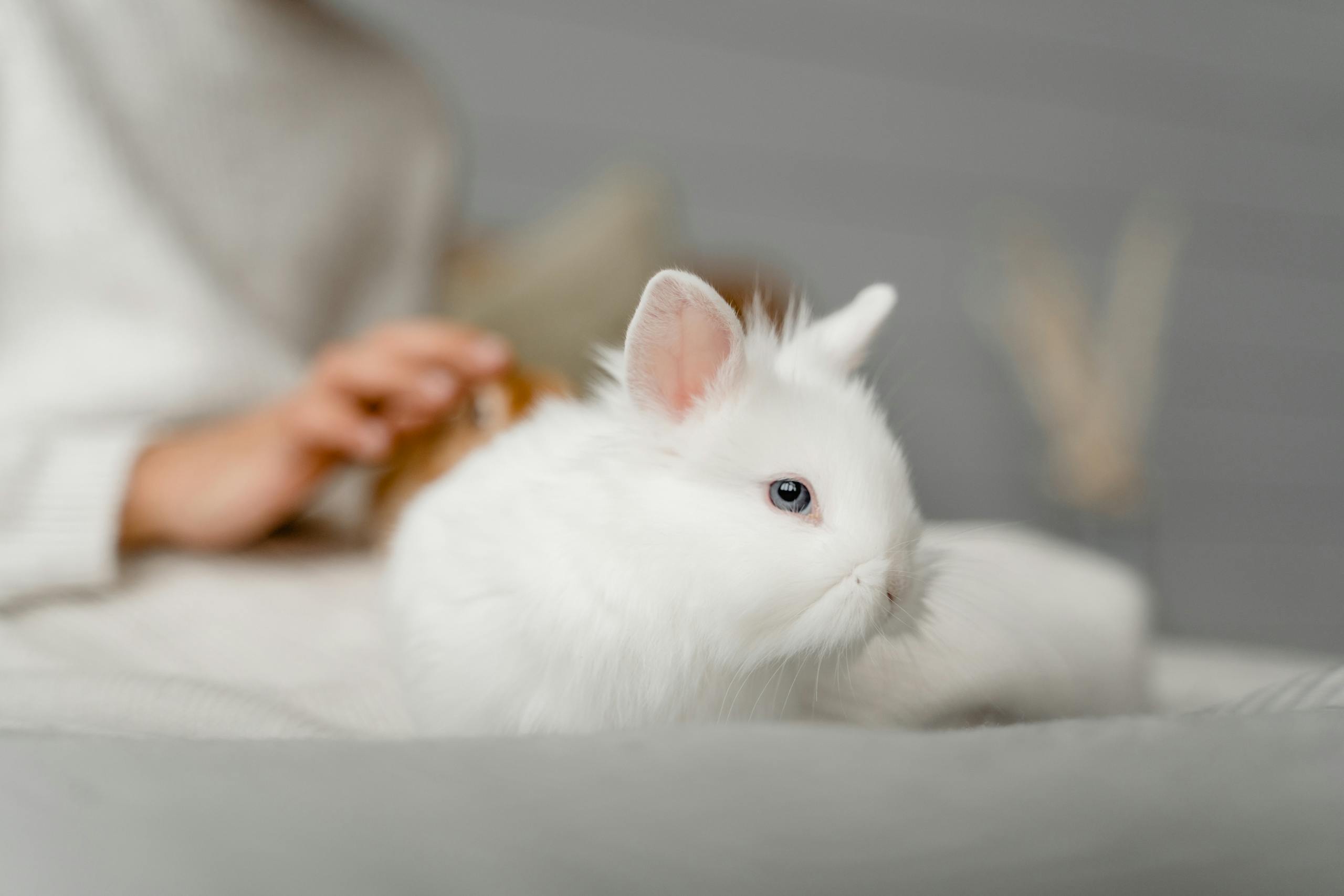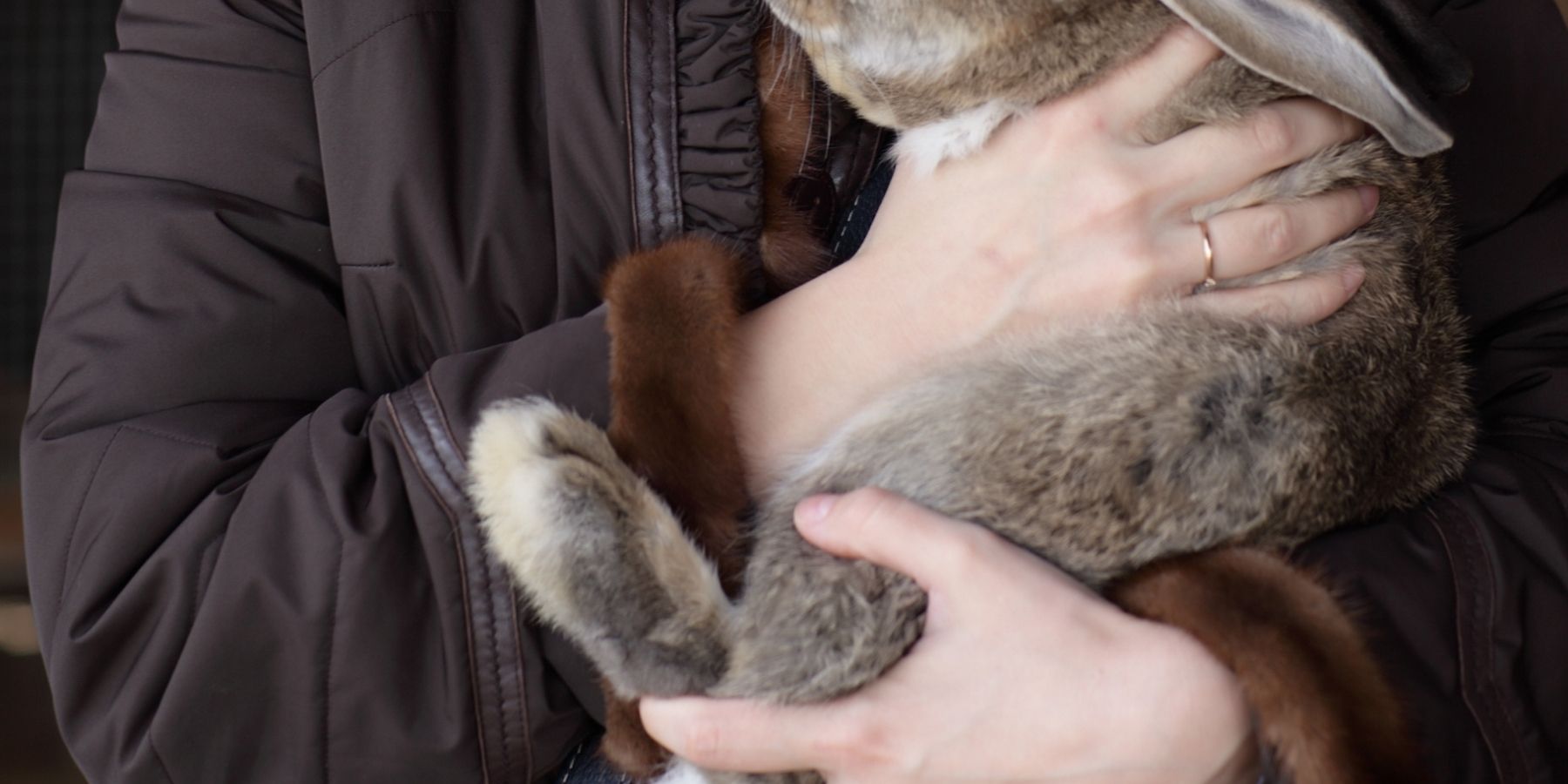Why Do Rabbits Eat Their Own Poop: Understanding Coprophagy in Rabbits
Have you ever caught your pet rabbit eating their own poop? If so, you’re not alone. While it may seem gross and unnatural to us humans, rabbits actually have a good reason for this behavior. In fact, it’s a normal and necessary part of their digestive process.
Rabbits are herbivores, which means their diet consists mostly of plant material. However, their digestive system is not very efficient at breaking down and extracting all the nutrients from this material.
That’s where eating their own poop, or “cecotropes”, comes in. Cecotropes are a special type of poop that rabbits produce in their cecum, a part of the digestive system that is located between the small and large intestine.
These cecotropes are high in nutrients and vitamins that the rabbit’s body needs, such as protein and vitamin B. By eating them, rabbits are able to extract more nutrients from their food and maintain a healthy balance of bacteria in their gut.
Understanding Rabbit Digestion
Rabbits have a unique digestive system that allows them to extract nutrients from the fibrous plant material they consume. Understanding their digestion process is crucial to understanding why rabbits eat their own poop.
The Role of Cecotropes
One of the key components of rabbit digestion is the cecum, a specialized organ in the digestive tract that is responsible for fermenting fibrous material. Cecotropes, also known as night feces, are small, soft pellets that are produced in the cecum and excreted by the rabbit.
Cecotropes are not the same as the hard, round pellets that are commonly associated with rabbit droppings. Instead, they are nutrient-rich and contain a high concentration of bacteria that aid in the digestion of fibrous material.
When rabbits consume their cecotropes, they are essentially recycling the nutrients and bacteria that were not fully digested during the first pass through their digestive system. This allows them to extract the maximum amount of nutrition from their food.
Hindgut Fermentation Process
Rabbits are hindgut fermenters, which means that the majority of their digestion takes place in the large intestine. This process is facilitated by a diverse population of bacteria that break down fibrous material and produce volatile fatty acids, which are the primary source of energy for the rabbit.
The hindgut fermentation process is not very efficient, however, and rabbits must consume a large amount of fibrous material in order to extract enough nutrition to survive. This is why rabbits have such a voracious appetite and are constantly grazing.
In order to extract even more nutrition from their food, rabbits will often consume their cecotropes directly from their anus. While this behavior may seem unappetizing to humans, it is a perfectly natural and necessary part of the rabbit’s digestive process.
By understanding the role of cecotropes and the hindgut fermentation process, you can gain a better appreciation for the unique digestive system of rabbits and why they engage in behaviors such as eating their own poop.
Nutritional Importance of Coprophagy
If you’re a rabbit owner, you may have noticed that your rabbit eats their own poop. This might seem gross, but it’s actually an important part of their diet. In this section, we’ll explore the nutritional benefits of coprophagy, or the consumption of fecal pellets.
Vitamins and Nutrients Reabsorption
Rabbits are herbivores, meaning their diet consists mainly of plants. However, they have a unique digestive system that requires them to eat their fecal pellets in order to absorb certain nutrients. When rabbits eat their own poop, they’re re-ingesting vitamins and nutrients that were not fully absorbed during the first pass through their digestive system.
For example, rabbits require a high intake of vitamin B12, which is produced by bacteria in their cecum. By eating their fecal pellets, rabbits are able to reabsorb this important vitamin and maintain their overall health.
Fiber and Protein Intake
In addition to vitamins and nutrients, fecal pellets also contain fiber and protein. Fiber is important for maintaining a healthy digestive system, while protein is essential for building and repairing tissues in the body.
By consuming their own fecal pellets, rabbits are able to increase their fiber and protein intake. This is especially important for young rabbits, who require a higher protein intake for growth and development.
Coprophagy may seem strange to us, but it is an important part of a rabbit’s diet. By re-ingesting their fecal pellets, rabbits are able to absorb important vitamins and nutrients, as well as increase their fiber and protein intake. So the next time you see your rabbit eating their own poop, remember that it’s all part of a healthy diet!
Health and Behavioral Aspects
Preventing Nutritional Deficiency
Rabbits are herbivorous animals that require a high fiber diet to maintain a healthy digestive system. However, not all the nutrients from their food are absorbed during the first passage through the digestive tract. By eating their own feces, rabbits can re-ingest these nutrients and improve their overall nutritional intake. This is especially important for young rabbits, who need all the nutrients they can get to grow and develop properly.
If you notice your rabbit eating their own poop excessively, it may be a sign that they are not getting enough nutrients from their diet. Consider adding more hay and fresh vegetables to their diet, or consult with a veterinarian to ensure that your rabbit is getting all the nutrients they need.
Behavioral Reasons for Coprophagia
In addition to nutritional benefits, rabbits may also engage in coprophagia for behavioral reasons. For example, rabbits in the wild may eat their own feces to avoid leaving a scent trail that could attract predators. Domestic rabbits may also engage in coprophagia as a way to mark their territory or to alleviate boredom or stress.
If your rabbit is exhibiting coprophagia due to boredom or stress, it’s important to provide them with plenty of toys, hiding places, and social interaction to keep them mentally stimulated and happy. Regular exercise and playtime can help alleviate stress and prevent boredom.
While the idea of rabbits eating their own poop may seem strange or even gross, it is a natural and necessary behavior for their health and well-being. By understanding the reasons behind this behavior and taking steps to address any underlying issues, you can help ensure that your rabbit stays healthy and happy.
Rabbit Care and Diet Management
If you are a rabbit owner, understand the proper feeding practices and how to identify and address health issues. This will help ensure that your rabbit stays healthy and happy.
Proper Feeding Practices
Rabbits are herbivores, and their diet should consist mainly of hay and fresh greens. Hay is an essential part of their diet as it helps keep their digestive system healthy and prevents dental problems. You should provide your rabbit with unlimited access to hay, preferably grass hay such as timothy hay.
In addition to hay, you should also provide your rabbit with fresh greens such as leafy greens. These greens are a good source of vitamins and minerals and help keep your rabbit hydrated. However, you should introduce new greens slowly and in small amounts to avoid digestive upset.
It is also important to avoid feeding your rabbit too much alfalfa hay as it is high in calcium and can cause health problems. Instead, stick to grass hay as the main source of hay for your rabbit.
Identifying and Addressing Health Issues
One common health issue in rabbits is runny cecotropes. These are soft, smelly fecal pellets that rabbits produce and then eat. If your rabbit is producing too many cecotropes or they are runny, it may be a sign of an underlying health issue such as dental problems or gastrointestinal issues. You should take your rabbit to the vet for a check-up if you notice this issue.
In addition, if your rabbit stops eating or drinking, has diarrhea, or shows signs of pain, it may be a sign of illness. You should seek veterinary attention immediately to address any health issues.
By following proper feeding practices and being aware of potential health issues, you can ensure that your rabbit stays healthy and happy.
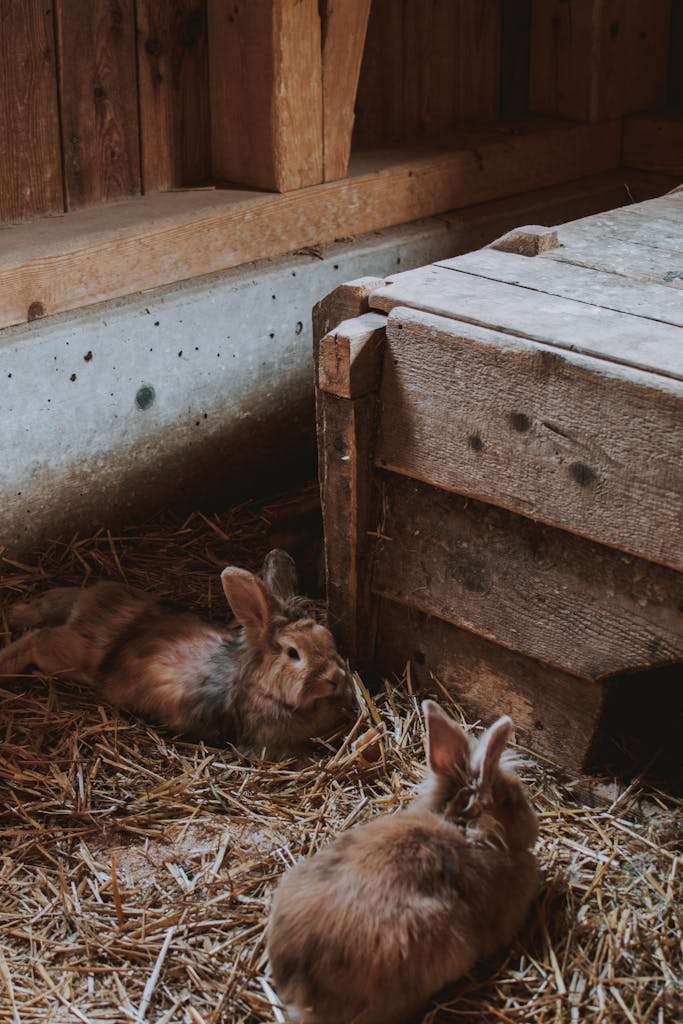
Environmental and Hygiene Considerations
When it comes to rabbits eating their own poop, there are several environmental and hygiene considerations to keep in mind. Here are a few things to consider:
Litter Box
If you have a pet rabbit, it’s important to provide them with a clean litter box. This will help prevent the spread of bacteria and disease. Make sure to clean the litter box on a regular basis and replace the litter as needed.
Rabbit Droppings
Rabbit droppings can contain harmful bacteria and parasites, so it’s important to handle them carefully. Make sure to wear gloves when cleaning up after your rabbit and dispose of the droppings in a sealed bag.
Hygiene
Good hygiene is essential when it comes to handling rabbits and their droppings. Make sure to wash your hands thoroughly after handling your rabbit or cleaning their litter box.
Environmental Impact
Rabbits eating their own poop is actually a natural behavior that helps them extract more nutrients from their food. While this behavior may seem strange to us, it’s actually an important part of their digestive process.
It’s important to maintain a clean and healthy environment for your pet rabbit. By taking the necessary precautions and being mindful of hygiene and environmental considerations, you can help ensure that your rabbit stays happy and healthy.

